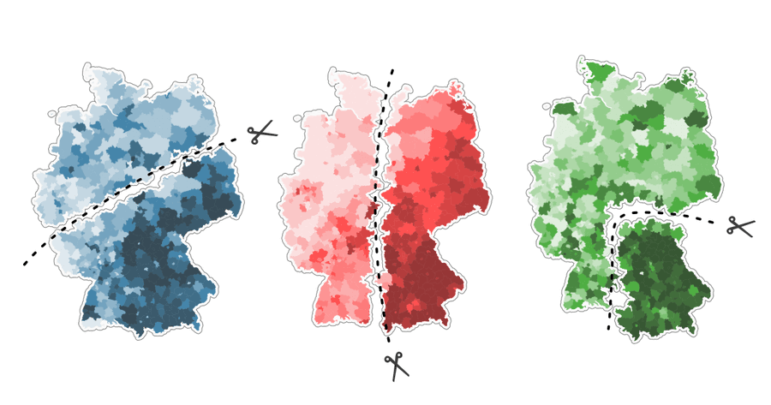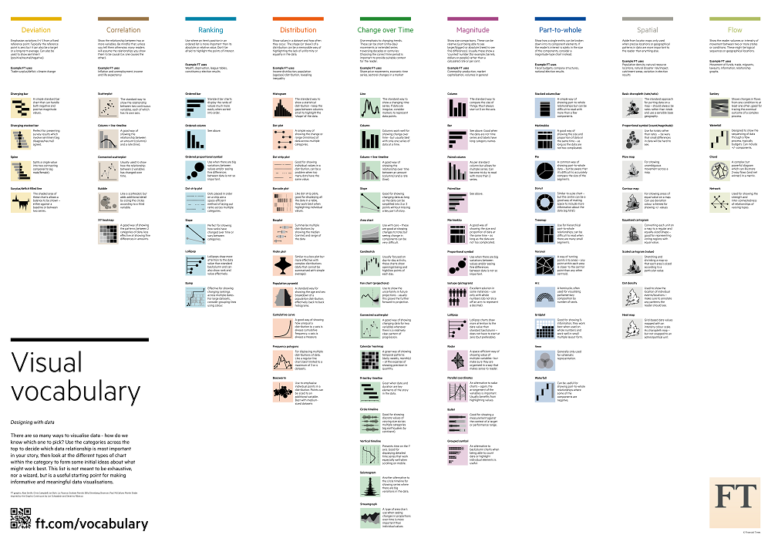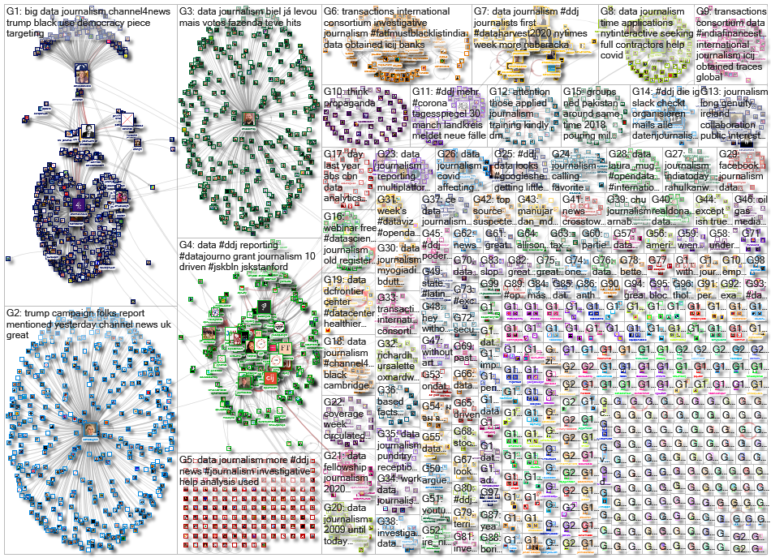

Data Journalism Top 10: Black Voter Suppression, K-Pop, Data Privacy Rights, and Global Coronavirus Deaths
Personal data is big business, and not only for private firms. Our NodeXL #ddj mapping from September 28 to Oct 4 finds a number of troubling investigations: The UK’s Channel 4 News revealed that Donald Trump’s 2016 presidential campaign used personal data from Facebook and Cambridge Analytica to deter Black voters from casting ballots; Consumer Reports found that companies make it difficult for people to opt out of having their data sold despite a landmark California law that protects individual data rights; and Noteworthy and The Business Post highlighted a lack of clear regulation surrounding access to, and use of, genetic and patient data by private firms.
Suppressing Black Votes
The investigations team at Channel 4 News, a British television program, obtained a trove of data used by Donald Trump’s 2016 campaign for the US presidency. An analysis of the data revealed that 3.5 million Black Americans were listed in a “Deterrence” category — a group of voters the campaign team wanted to stay home on election day. It targeted this group with negative Facebook ads designed to crush voter turnout. Read the investigation, watch the video, and see this explainer of key facts. Channel 4 News journalists also surprised the media professor David Carroll by getting hold of the data held on him by the political consulting firm Cambridge Analytica. His legal battle to gather the information was featured in the documentary about the Facebook-Cambridge Analytica data scandal, “The Great Hack.”
The K-Pop Formula
K-pop (short for Korean pop) has some of the biggest groups in music with bands ranging from seven to as many as 23 members. Why are the groups super-sized compared to traditional rock bands? And does their size correlate with their popularity? The Pudding and Kontinentalist attempt to answer these questions by tracking trends in K-pop group sizes, their popularity, and member roles over the genre’s 30-year history.
Coronavirus Death Toll Surpasses 1 Million
The worldwide coronavirus death toll surpassed the 1 million mark eight months after the first confirmed fatality in Wuhan, China, according to data collected from Johns Hopkins University in the US. The Financial Times charted the daily COVID-19 death toll and found the average daily deaths between September 22 and 28 amounted to 5,243 people.
Germany’s COVID-19 Hotspots
As more and more districts in Germany are declared coronavirus hotspots, authorities in each German federal state are imposing travel restrictions between districts with little central government coordination. German daily Der Tagesspiegel mapped out the risk areas and tried to make sense of the differing rules for each district.
Google Sheets Update
Google Workspace (formerly G Suite) will be launching two new Google Sheets features, with data clean-up suggestions and column stats. The features should make it easier to work with large datasets and enable quicker analysis by generating visualizations.
Examining Privacy Rights
Consumer Reports, the 84-year-old nonprofit watchdog, examined the implementation of a landmark privacy law in California that governs companies trading in the personal information of state residents. The study found that the process for individuals to opt out of having their data sold was often slow, confusing, frustrating, or impossible to navigate.
Ireland Genome Data Privacy
Selling personal data is a lucrative business. To investigate, Noteworthy, an in-depth journalism platform, teamed up with The Business Post, an Irish publication, to examine concerns surrounding genetics research and the handling of patient data and consent in Ireland by private firms. The newsrooms found a troubling lack of clear regulation related to access to patient data. Read the investigation, and see a detailed table of their findings.
https://twitter.com/mhdelaney/status/1312685432216473600
COVID-19 Failures in Kyrgyzstan
Kyrgyzstan’s news portal 24.kg analyzed the country’s early response to the coronavirus pandemic and found that the authorities could have done more to mitigate the outbreak. It highlighted three crucial mistakes that contributed to the spread of the virus: a weak testing and contact tracing system, a failure to strengthen the health system early enough, and a lack of information on the importance of social distancing.
Divided Germany
Here’s an interesting interactive by German daily Berliner Morgenpost: Use a digital scissors to cut Germany into two random parts and discover the differences between the two sections in 30 different fields. The interactive graphic includes data on life expectancy, fathers on parental leave, the gender pay gap, pig rearing, burglaries, and the number of Olympic medalists by section.
YouTube News in America
The Pew Research Center, a nonpartisan American think tank, studied the landscape of news disseminated on YouTube in the US. Results show that about a quarter of all US adults get their news from YouTube, while the 377 most popular YouTube news channels are a mix of established news organizations (49%) and independent channels (42%), with the rest associated with other types of organizations (9%).
Thanks again to Marc Smith and Harald Meier of Connected Action for gathering the links and graphing them. The Top Ten #ddj list is curated weekly.
 Eunice Au is GIJN’s program manager. Previously, she was a Malaysia correspondent for Singapore’s The Straits Times, and a journalist at the New Straits Times. She has also written for The Sun, Malaysian Today, and Madam Chair.
Eunice Au is GIJN’s program manager. Previously, she was a Malaysia correspondent for Singapore’s The Straits Times, and a journalist at the New Straits Times. She has also written for The Sun, Malaysian Today, and Madam Chair.










